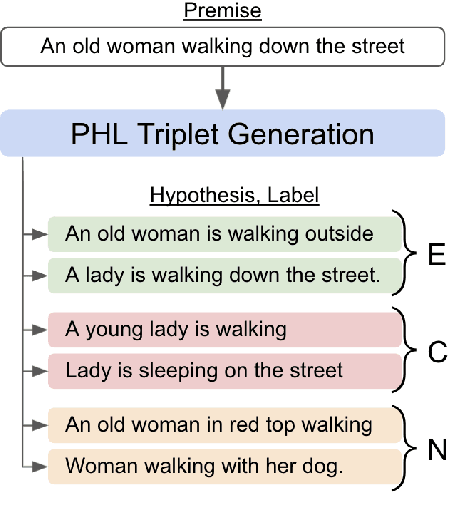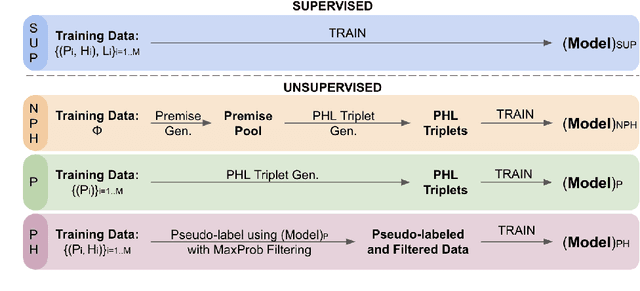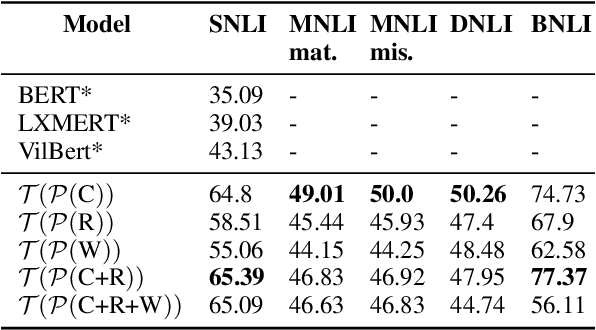Unsupervised Natural Language Inference Using PHL Triplet Generation
Paper and Code
Oct 16, 2021



Transformer-based models have achieved impressive performance on various Natural Language Inference (NLI) benchmarks, when trained on respective training datasets. However, in certain cases, training samples may not be available or collecting them could be time-consuming and resource-intensive. In this work, we address this challenge and present an explorative study on unsupervised NLI, a paradigm in which no human-annotated training samples are available. We investigate NLI under three challenging settings: PH, P, and NPH that differ in the extent of unlabeled data available for learning. As a solution, we propose a procedural data generation approach that leverages a set of sentence transformations to collect PHL (Premise, Hypothesis, Label) triplets for training NLI models, bypassing the need for human-annotated training datasets. Comprehensive experiments show that this approach results in accuracies of 66.75%, 65.9%, 65.39% in PH, P, NPH settings respectively, outperforming all existing baselines. Furthermore, fine-tuning our models with as little as ~0.1% of the training dataset (500 samples) leads to 12.2% higher accuracy than the model trained from scratch on the same 500 instances.
 Add to Chrome
Add to Chrome Add to Firefox
Add to Firefox Add to Edge
Add to Edge